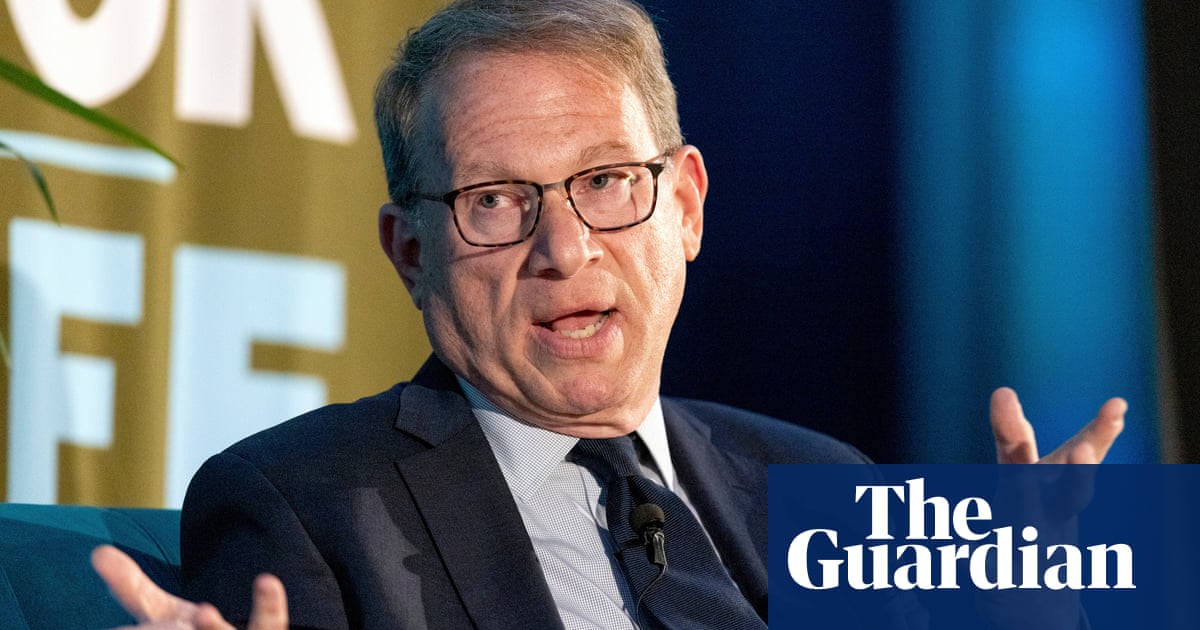German chancellor hits back at US at security conference
German chancellor Olaf Scholz has shot back strongly in defence of his stance against the far-right and said his country will not accept people who “intervene in our democracy,” a day after US vice-president JD Vance scolded European leaders over their approach to democracy, reports the Associated Press (AP).
The German leader spoke with just eight days before crucial elections in Germany, with polls showing the far-right Alternative for Germany party currently in second.
Vance said on Friday at the Munich Security Conference that he fears free speech is “in retreat” across the continent.
“Germany is a very strong democracy, and as a strong democracy, we are absolutely clear that the extreme right should be out of political control and out of political decision making processes, and that there will be no cooperation with them,” Scholz said. “We really reject any idea of cooperation between parties, other parties and this extreme right parties.”

A day earlier, Vance said that many Americans saw in Europe “entrenched interests hiding behind ugly Soviet-era words like misinformation and disinformation, who simply don’t like the idea that somebody with an alternative viewpoint might express a different opinion or, God forbid, vote a different way, or even worse, win an election.”
Scholz, shooting back, said “free speech in Europe means that you are not attacking others in ways that are against legislation and laws we have in our country.” He was alluding to rules in Germany that restrict hate speech, reports the AP.
The comments came as European leaders have been trying to make sense of a tough new line from Washington on issues including democracy and Ukraine’s future, as the Trump administration continues to upend transatlantic conventions that have been in place since after the second world war.
Key events
Nato members have to increase defence spending despite domestic political concerns, says Rutte
Nato secretary general Mark Rutte said on Saturday that “Russia is on a war economy. We are not” at the Munich Security Conference (MSC).
In remarks later published on the offical MSC X account, Rutte was quoted as saying:
Russia is on a war economy. We are not. We have to do this and cut the red tape and to our American friends it is also good business because the European allies spend four times more in the US than the US is spending in Europe.”
Additionally, Rutte said Nato’s members would have to increase defence spending despite domestic political concerns. The alliance currently calls on members to spend at least 2% of gross domestic product on defence, but Rutte believes a shift to focusing on the capabilities required by Nato will see that rise to more than 3%.
According to the PA news agency, Rutte told the conference in Munich that US president Donald Trump was right to argue for European nations to do more to pay for security on the continent. Rutte said:
It is simply not fair if European Nato countries are paying less for their collective defence than the US is paying for that, because the US would also like to lower its taxes or to spend more on education or whatever you want to spend it on.
The argument cannot be that we are so poor here – we are the richest part of the world, the money is there. That cannot be the problem.”
There would have to be “difficult decisions” taken by European states but sticking to 2% would not be enough, he added. The new Nato process to assess what gaps in defence capabilities need to be filled “will lead you to a number which is much, much more than 2%”, with the new targets due to be set out within months, said Rutte.
Rutte suggested annual increases of 0.2 to 0.3 percentage points a year could be how the target was set to “get there fast” but in a credible way.
For the second half of the Munich Security Conference (MSC) on Saturday, the focus will be on “global tensions with regional impact”, according to the official line from the MSC.
There are a number of panel discussions scheduled with foreign ministers, according to the conference agenda, so we can expect to hear from the likes of the UK’s foreign secretary, David Lammy, Germany’s foreign minister, Annalena Baerbock, and Canada’s minister of foreign affairs, Mélanie Joly, among others.
In JD Vance’s confrontational and pugnacious speech at the Munich Security Conference, the vice-president ran through a series of examples to highlight his claims that Europe has gone off the rails.
My colleagues, Daniel Boffey and Alexandra Topping lhave taken a ook at what he said – and whether it stacks up – in this explainer piece:
Analysis: Vance speech was call to arms for the populist right to seize power in Europe

Patrick Wintour
Since 1963, the Munich Security Conference has seen many consequential speeches, notably Vladimir Putin announcing in 2007 that Russia would never accept a subordinate role in the new world order. But Friday’s speech by JD Vance, the US vice-president, has the potential to be the most consequential – the moment the world order against which Putin railed fell apart.
Sometimes, even in this digital age, speeches can act as clarifiers. Yes, the 22 minutes were full of laughable hypocrisy, distorted portraits of European democracy and insensitivity to Europe’s trauma with fascism, but for what it said about the chasm in values between most in Europe and the Trump administration, it was hard to overlook.
The shock was in part because the conference traditionally tends to talk about the polarisation of populism, as opposed to invite a populist to speak. The organisers had expected a dissertation on Ukraine, but instead got the full populist pulpit, and therefore something more significant.
The speech signalled that the pre-existing dispute between Europe and the US was no longer to do with the sharing of the military burdens, or the nature of the future security threat posed by Russia, but something more fundamental about society.
It was not just a collection of cheap shots in a culture war, while a real, life-and-death military war was largely ignored. It was a call to arms for the populist right to be able to seize power in Europe, and a promise that the “new sheriff in town” would help them to do so.

Andrew Roth
The Trump administration is making a big bet on Europe’s hard right.
Speaking at a conference of Europe’s leaders in Munich on Friday, the US vice-president JD Vance stunned the room by delivering what amounted to a campaign speech against Germany’s sitting government just one week before an election in which the anti-immigrant, anti-Muslim AfD is set to take second place.
As Vance accused foreign leaders of suppressing free speech, failing to halt illegal migration and running in fear from voters’ true beliefs, a whisper of “Jesus Christ” and the squirming in chairs could be heard in an overflow room.
Hours later he met with Alice Weidel, the leader of the AfD, breaking a taboo in German politics called the “firewall against the far-right”, meant to kept the anti-immigrant party with ties to extremists out of the mainstream and of any ruling coalition.
“It’s an incredibly controversial thing for him to do,” said Kristine Berzina, the managing director of the German Marshall Fund’s Geostrategy North, who was at the Munich Security Conference.
The backing of Vance – or Elon Musk, who recently gave a video address at an AfD party summit – is unlikely to tilt the result of Germany’s elections, said Berzina. And it’s unlikely to browbeat the ruling Christian Democratic Union, which should win next week’s vote, into allowing AfD to enter any coalition.
But the US right under Trump does have its eyes set on a broader transformation in Europe: the rise of populist parties that share an anti-immigration and isolationist worldview and will join the US in its assault on globalism and liberal values. They see those leaders in Viktor Orbán in Hungary, Giorgia Meloni in Italy, as well as the UK’s Reform party and Marine Le Pen in France.
You can read more of Andrew Roth’s analysis piece here:
Olaf Scholz has responded strongly in defence of his stance against the far-right and said his country would not accept people who “intervene in our democracy”, a day after the US vice-president, JD Vance, attacked European governments for the way they sought to counter the political influence of far-right groups such as Germany’s Alternative für Deutschland (AfD) party.
The German leader spoke just eight days before crucial elections in his country, with polls showing the far-right AfD currently in second place.
JD Vance decried as extremist over attack on UK abortion clinic safe zones

Alexandra Topping
JD Vance has been labelled an “extremist” after he launched a broadside against the UK’s efforts to protect women seeking an abortion.
The US vice-president’s criticisms of UK and Scottish policies on safe access zones around abortion clinics -part of a wide-ranging tirade against Europe on Friday – were derided as inaccurate and misogynistic by a number of groups, politicians and governments.
Heidi Stewart, the chief executive of Bpas, the UK’s leading provider of abortion services, said safe zones – buffer areas of 150 metres around abortion clinics designed to stop women being harassed with leaflets, shown pictures of foetuses, or having to pass by vigils – were vital to protect women’s access to essential healthcare in an “overwhelmingly pro-choice country”.
“Bpas … will always remain proud to stand against misogynistic and anti-democratic interference with British women’s reproductive rights by foreign extremists, whether they are the vice-president of the US or not,” she said.
The Labour MP Stella Creasy, who campaigned for the safe zones which were introduced last year, posted a picture of a scene from the dystopian television series The Handmaid’s Tale alongside with the words: “And so it begins … ” She accused Vance of calling “for the right to harass women having an abortion” because “our bodies are their battleground, our human rights their target”.
In Vance’s speech at the Munich Security Conference, he said the UK had “placed the basic liberties of religious Britons … in the crosshairs”, citing the prosecution of Adam Smith-Connor, a physiotherapist and army veteran. Vance said he had been charged with the “heinous crime of standing 50 metres from an abortion clinic and silently praying for three minutes, not obstructing anyone, not interacting with anyone, just silently praying on his own”.
Posting on X today, German chancellor Olaf Scholz wrote:
As a strong democracy we are very clear: The extreme right should be out of political decision making processes.
We reject any idea working together with the extreme right and its not on others to give us advices to do so.”
Earlier, Scholz shot back strongly (see 9.07am GMT) in defence of his stance against the far-right and said his country will not accept people who “intervene in our democracy,” a day after US vice-president JD Vance scolded European leaders over their approach to democracy.
Keller-Sutter also played down concerns over US efforts to broker a Ukraine truce deal with Moscow, reports Agence France-Presse (AFP).
US president Donald Trump stunned allies and upended the status quo of US support for Ukraine this week when he announced he had a lengthy phone conversation with Russian leader Vladimir Putin and that the two would probably soon meet to start truce talks, raising concerns that Ukraine and Europe could be left in the cold.
She highlighted that “Trump’s method is to make an announcement and then things evolve. I don’t know if the initial project is very concrete. It is probably evolving”.
“We must not panic after each announcement,” Keller-Sutter added.
She stressed that “if there are talks between the US and Russia, Ukraine must of course be involved, but also Europe and the global south, to achieve a result”.
Amid angry European reactions to US vice-president JD Vance’s combative speech in Munich, Switzerland’s president said on Saturday she shared many of the “liberal values” he expressed, seeing the speech as a “plea for direct democracy”.
Vance’s speech at the Munich Security Conference on Thursday focused on key themes of Trump’s election campaign and was seen as a combative broadside against Europe and Germany in particular, accusing them of limiting free speech and excluding parties that voice strong concerns over immigration.
While the speech elicited strong rebukes from German and other leaders, Karin Keller-Sutter, Switzerland’s finance minister who now holds the country’s one-year rotating presidency, urged calm and praised the “very liberal principle” expressed in the speech, reports Agence France-Presse (AFP).
In an interview with the Le Temps daily published on Saturday, she said that “in a certain sense, (the speech) was very Swiss in its call to listen to the population”.
Keller-Sutter, who attended the conference but had not met members of the new US administration, highlighted that Vance had spoken about the need to “defend values that we share, like freedom and the possibility for the population to express itself”.
“It was a plea for direct democracy. One could read it that way,” said the president of Switzerland, a country renowned for its frequent recourse to referendums.
Vance slammed EU “commissars” for stifling free expression and charged that “across Europe, free speech, I fear, is in retreat”. Asked if she agreed with Vance’s accusation of EU censorship, Keller-Sutter said: “That is his opinion”.
But, she stressed, “he also affirmed a very liberal principle that I share: you must not simply share the opinions of others. You must also fight for them to be able to express them”.
German conservative opposition leader Friedrich Merz on Saturday joined his domestic political rivals in condemning US vice-president JD Vance’s attack on Europe’s stance toward hate speech and the far right, reports Reuters.
“We stick to the rules imposed by our democratic institutions,” Merz said in a panel discussion at the Munich Security Conference. Polls show his conservative bloc in the lead ahead of general elections in Germany on 23 February.
Germany is a staunch defender of freedom of speech “but fake news and hate speech remain subject to legal restraints,” he added.
His main political rival, German chancellor Olaf Scholz earlier on Saturday delivered a strong rebuke (see 9.07am GMT) to Vance’s attack on how governments in Europe seek to counter bids for political influence by far-right groups such as Germany’s AfD.
The Ukrainian president, Volodymyr Zelenskyy, told the Munich Security Conference on Saturday that the time has come for a European army to be created.
“Our army alone is not enough, we need your support,” he said, adding that the “old days” when the US supported Europe “just because it always had” are over.
He also told leaders and officials that he would not take Nato membership for Ukraine off the table and insisted that no decisions should be taken on ending Russia’s war without Kyiv and Europe. You can listen to his speech in the video below:
Here are some images from the Munich Security Conference today:










